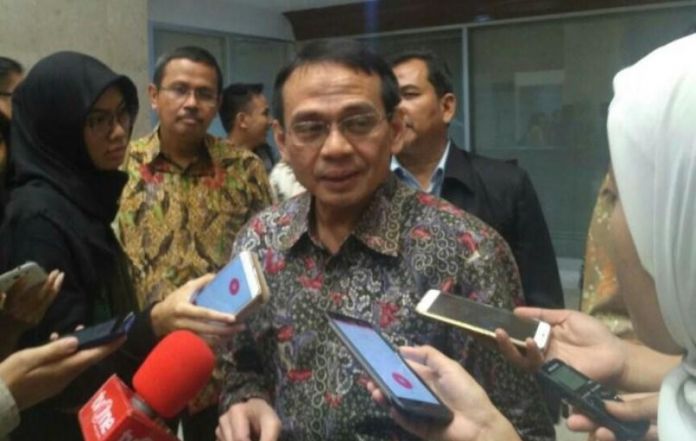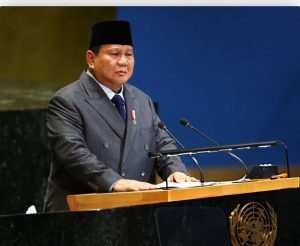BI-Agusman..jpg" alt="" width="696" height="441" class="size-full wp-image-110577" /> Executive Director of the Department of Communications BI, Agusman.
Jakarta, MINA — The financial system remains stable and the bank intermediation function continues to improve, Bank Antara News quoted Indonesia (BI) Executive Director for Communications Agusman as stating..
“Maintained stability in the financial system is reflected in the high Capital Adequacy Ratio (CAR) of the banking industry, reaching 23.1 percent, and liquidity ratio, 23 percent, in February 2018,” Agusman noted in a statement here on Monday.
Meanwhile, the banking industry has maintained stable non-performing loans at gross 2.9 percent or net 1.3 percent.
He remarked that easing the monetary and macroprudential policy was effectively reflected through the interest rate channel, with the banks inclined to lower their deposit and lending rates by 203 basis points (bps) and 155 bps respectively since BI began easing its monetary policy.
Also Read: Saudi Arabia Wins Bid to Host World Expo 2030
The banking industry reported credit growth at 8.2 percent year-on-year (yoy) in February 2018, up from 7.4 percent yoy a month earlier.
On the other hand, economic financing through the capital market, including initial public offerings and rights issues, corporate bonds, as well as medium-term notes, increased by 14.3 percent yoy in February 2018 in line with the financial market deepening program. Furthermore, the banking industry confirmed a relatively similar deposit growth at 8.4 percent yoy during the reporting period.
In line with the earlier forecast, BI projects a stronger deposit and credit growth in 2018 at 10-12 percent yoy and 9-11 percent yoy respectively.
Meanwhile, the rupiah exchange rate depreciated in March 2018 but then moved steadily in the first half of April 2018.
Also Read: 148 Products from Indonesia Promoted at Sarawat Superstore Jeddah
In March 2018, he noted that the rupiah depreciated by an average of 1.13 percent.
Global exchange rate depreciation pressure
Improvement in the US economic indicators was accompanied by market expectations of an aggressive federal funds rate hike and heightened pressures on the rupiah along with the impending risk of a trade war between the United States and China. Such inauspicious dynamics triggered a capital reversal and global exchange rate depreciation pressure, including on the rupiah.
Nonetheless, congruent with BI`s stabilization efforts, controlled domestic inflation, Indonesia`s upgraded rating, and trade surplus that drew non-resident capital inflows, the rupiah quickly stabilized in the first half of April 2018.
Also Read: Packaging Industry Supports Halal Ecosystem
BI will continue to monitor the build-up of uncertainty and risks in the global financial market while implementing measures to stabilize the exchange rate to safeguard the rupiah`s fundamental value and maintain market mechanisms. (T/RS5/RS1)
Mi’raj Islamic News Agency (MINA)
Also Read: Indonesia-Japan Agree on Energy Transition Cooperation














![Israeli tanks and APC’s gather by the Israeli – Lebanese border. Amid Israel’s escalating campaign against Hezbollah in Lebanon on September 30, 2024. [Erik Marmor/Getty Images]](https://en.minanews.net/wp-content/uploads/2024/10/IMG_20241001_203226-300x197.jpg)




















 Mina Indonesia
Mina Indonesia Mina Arabic
Mina Arabic